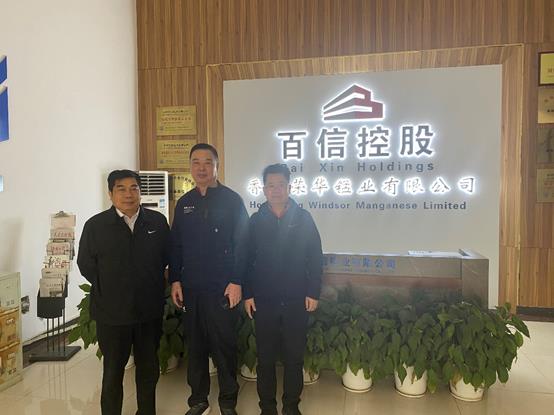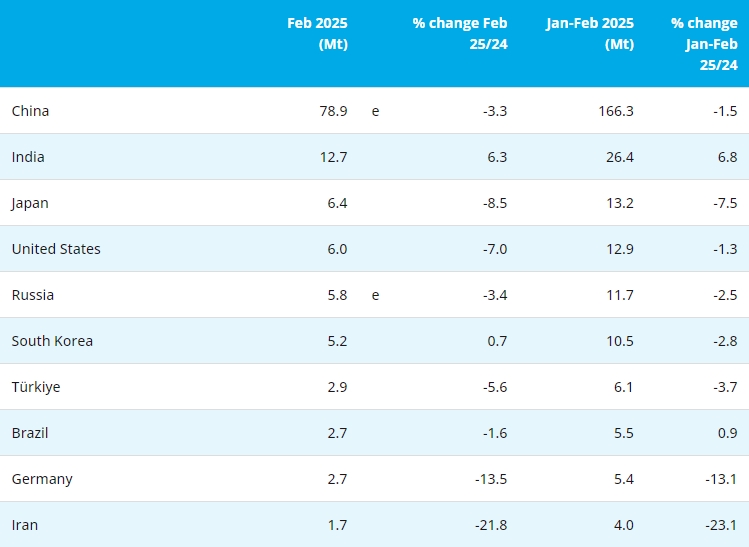[ferro-alloys.com]Ferrous scrap supply in Brazil could become tighter at the start of 2019 as soon as local steelmakers increase their operations' utilization rates and restart idled plants, industry sources said.
President-elect Jair Bolsonaro of the Social Liberal Party has apparently committed to kick-starting the Brazilian economy by signaling investments in the construction and infrastructure sectors as a priority. Moreover, the likely stability of Brazil's macroeconomics indicators will support growth in major steel consuming industries.
The ferrous scrap generation in the country has reduced its pace in the past four years as the country was struck by a deep 2014-2016 recession. "Any rebound in steel production will mean immediate increased demand for ferrous scrap supply, which may be unbalanced at first," a large-volume scrap dealer said.
The Brazilian steel sector is currently working at a rate of 68% of its productive capacity of around 50 million mt/year, according to the national steel association Aco Brasil. "It is likely reaching 75% if the economy recovers," it said.
According to data from the national ferrous scrap association, INESFA, Brazil consumed 8.9 million metric tons of ferrous scrap in 2017 and roughly the same level is expected for 2018.
The availability of prompt scrap in Brazil (also known as prime or new scrap) is expected to increase at a slower pace, sources said, although there is already improved activity seen in the automotive sector, mainly in the production of trucks.
"Additionally, industries have introduced more automation and efficiency into manufacturing during the recession period to reduce the waste," one market observer said.
At the same time, obsolete scrap generation due to end-of-life cycle of industrial and household goods are expected to occur only in the second-quarter of the year, according to market observers, when the purchasing power of Brazilian citizens should start to improve and replacements made.
"The scrap supply tightness may push scrap prices up a bit during the first quarter, but not much," a dealer said.
MILL PRICING POWER
The Brazilian steelmaking sector consumes about 90% of the ferrous scrap sold in the local market, with two or three players concentrating 80% of this consumption.
"Steelmakers set the price for ferrous scrap in Brazil; we (dealers) have no bargaining power," another dealer said, adding that 2018 was an atypical year in which recyclers were able to push prices up considerably in the first half due to a similar situation of limited supply.
A source from a steelmaker said the alternatives amid costlier raw materials in 2018 were: buying from different regions of the country, importing the material, or increasing pig iron in the production mix
According to sources, mills have been resorting to importing scrap -- and even paying more for the material from overseas -- in an attempt to pressure domestic suppliers.
Brazilian ferrous scrap import volumes surged to a record high in September of 138,000 mt, up 6,213% year on year, and also saw the country post an annual record only nine months into the year, according to data from the Ministry of Industry and Foreign Trade.
Brazilian imports of ferrous scrap in the January-September period totaled 228,663 mt, compared with less than 20,000 mt in all of 2017. The previous import record was posted in 2010, when the country imported a total of 134,370 mt of the raw material.
Scrap import volumes started to gain momentum in July, when 37,299 mt passed through Brazilian ports, followed by 38,358 mt in August.
"I think mills will continue to import the raw material and pressure the local market for lower prices," said a source.
Dealers confirmed that these imports were the top reason for some recent cuts in domestic delivered prices to mills, followed by the seasonal year-end decline in consumption, with companies typically reducing production and shutting their furnaces for temporary maintenance.
As an alternative, scrap dealers have been opting to sell to foundries or other scrap dealers, which are paying higher, instead of selling to mills.
ADDITIONAL CHALLENGES
The deficient infrastructure and high freight costs are cited as additional challenges faced by the Brazilian recycling sector.
Freight rates can vary across the Southeastern region from Real 50/mt to Real 200/mt, depending on the location of supplier and customer.
"It is kind of a crazy situation when it is cheaper to ship scrap to China rather to the North of Brazil, for example," said a source. "Still, exporting scrap is not yet a viable option for Brazilian dealers. Costs at port are also incredibly high."
Nevertheless, the Brazilian ferrous scrap market complains of a "very immature" domestic market when it comes to negotiating terms.
The sector is seeking more standardized inspection of material when at the delivered locations. "The current manual and subjective procedures continue to impact pricing," another dealer said.
Also, the majority of transactions "remain under verbal contracts," which implies no security and responsibility for any party involved.
"There are no papers involved," a dealer said. "So there are no guarantees for either side when negotiating a scrap cargo in Brazil."
Ultimately, the ferrous scrap market in Brazil seeks to expand its participation in the steelmaking process, although the country's steel production route remains very iron-ore dependent (78%).
The proportion between scrap consumption and steel produced in Brazil is at 25.9%, well below the world average of 35.5%. In comparison, the ratios in Turkey, the US and the EU are 80.8%, 72.1% and 55.5%, respectively, according to data from the Bureau of International Recycling (BIR).
(S&P Global Platts)
- [Editor:王可]



 Save
Save Print
Print Daily News
Daily News Research
Research Magazine
Magazine Company Database
Company Database Customized Database
Customized Database Conferences
Conferences Advertisement
Advertisement Trade
Trade










 Online inquiry
Online inquiry Contact
Contact

Tell Us What You Think